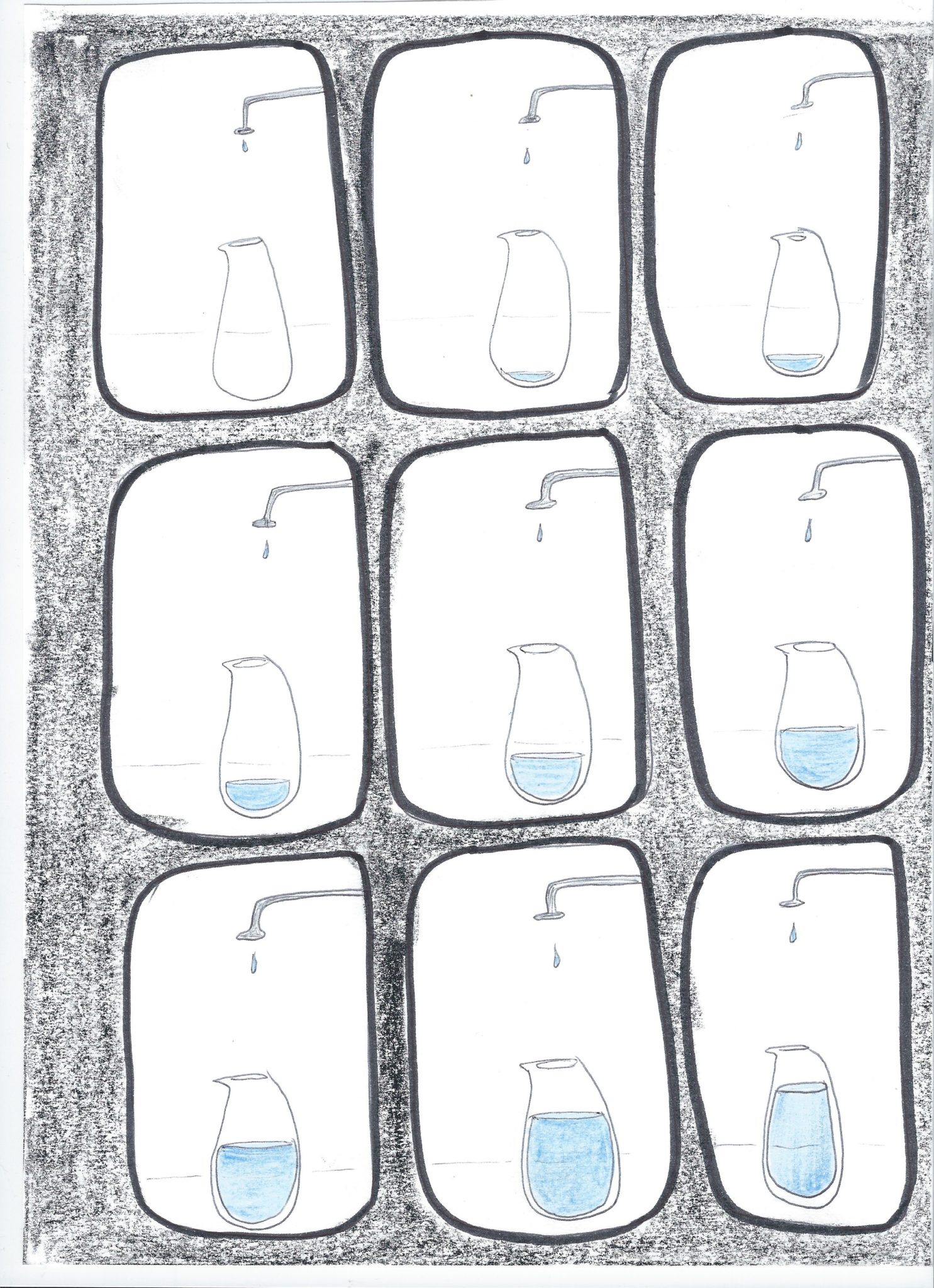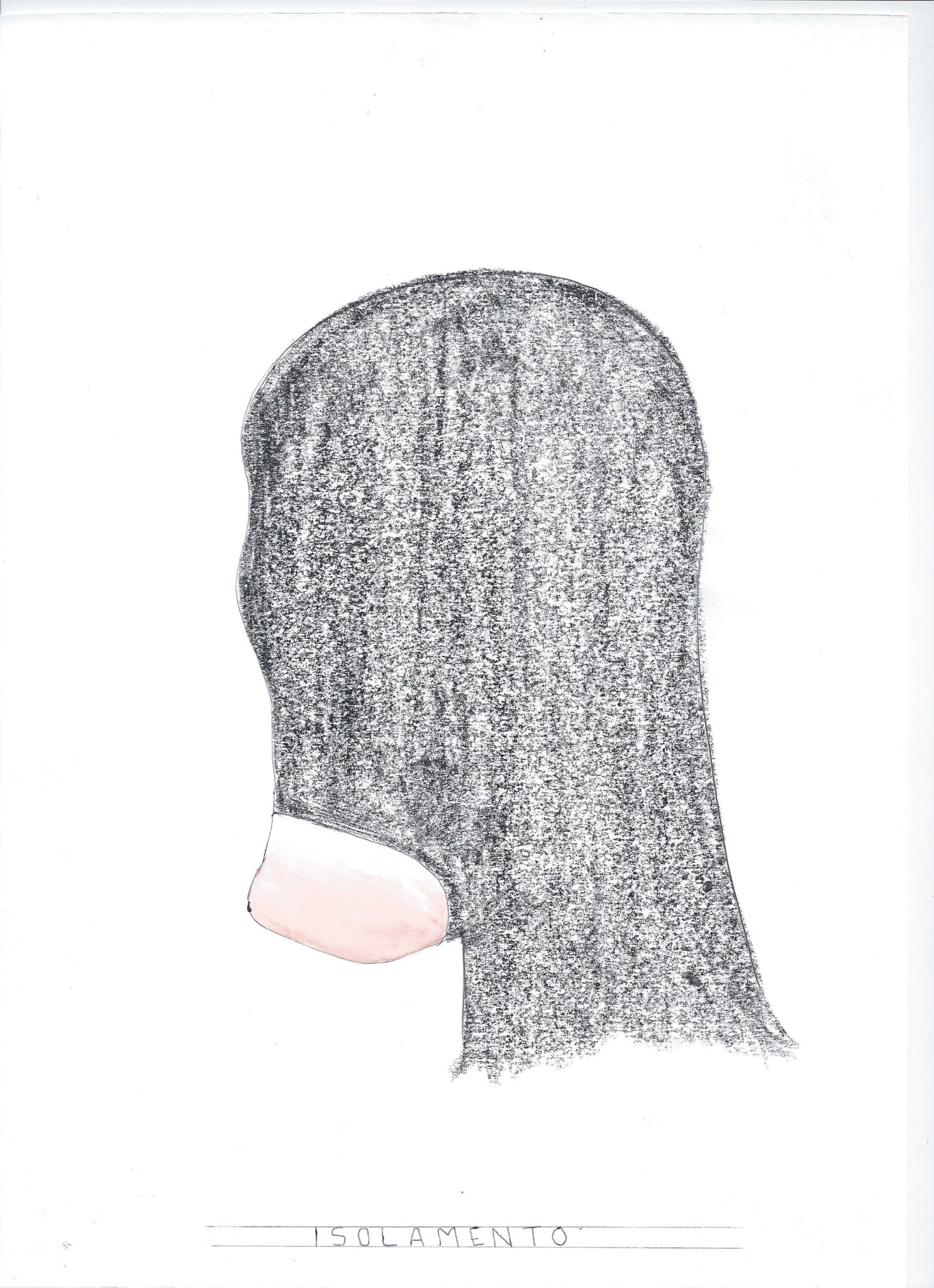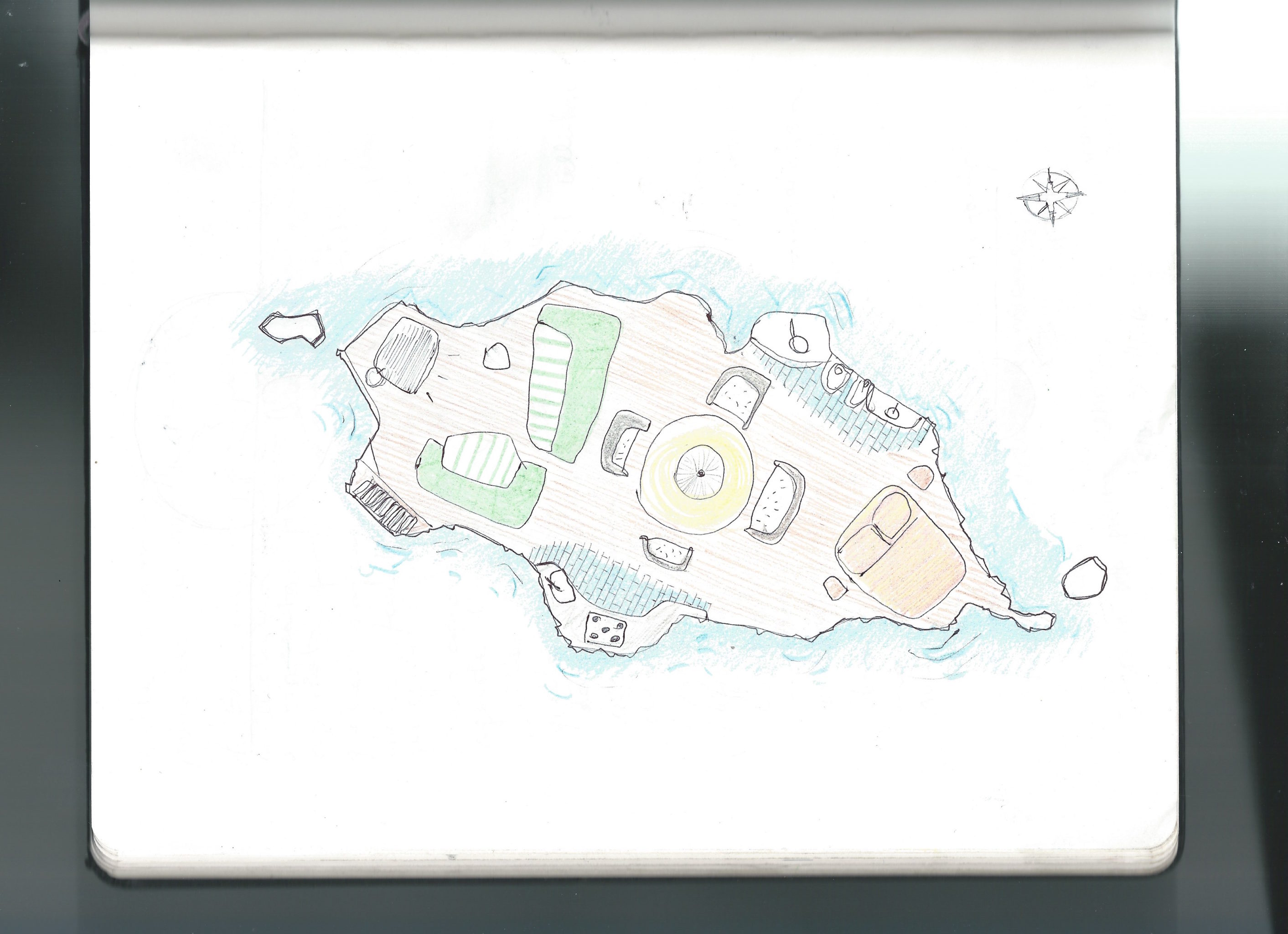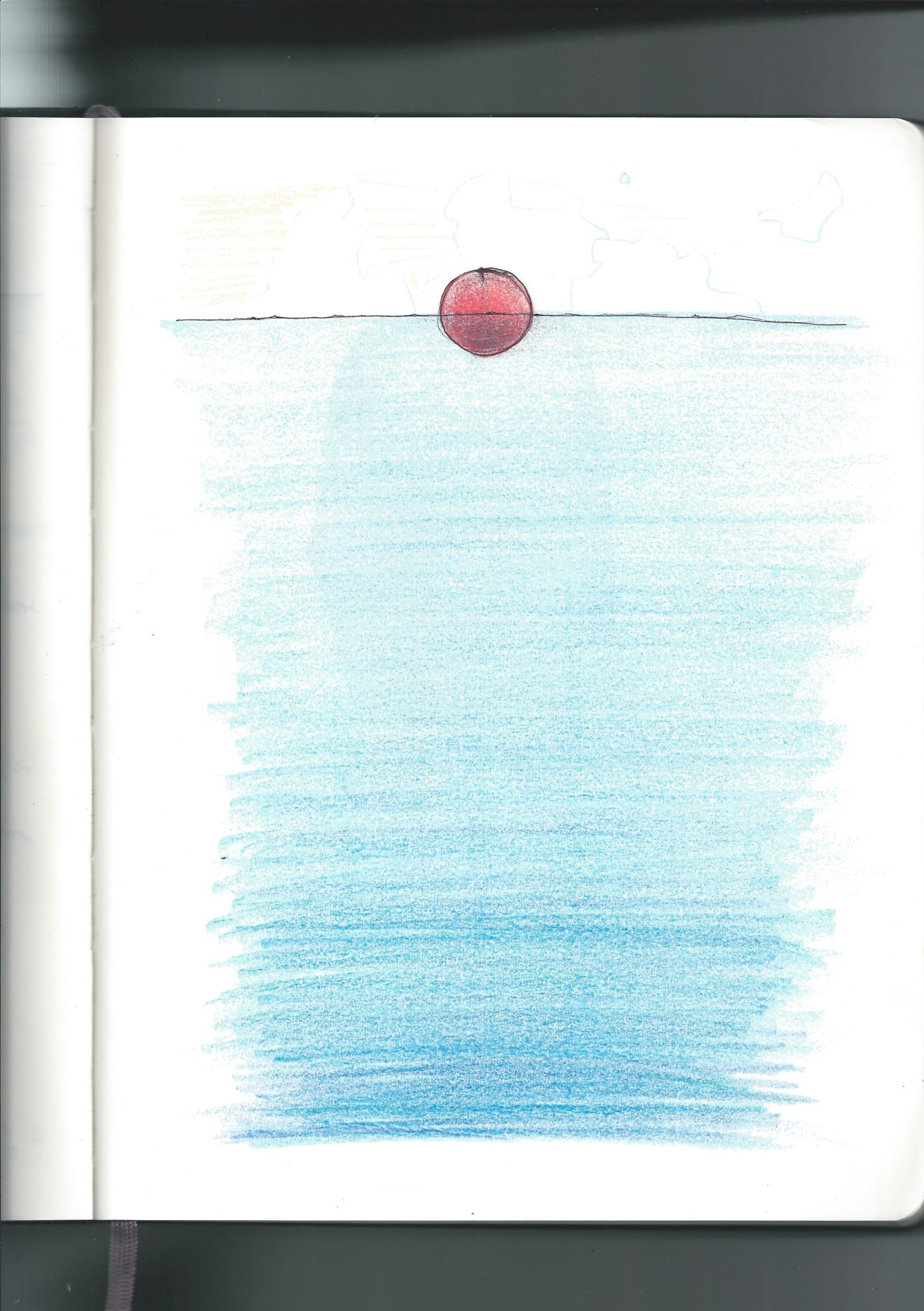4 illustrations and 4 books: contemplating isolation with Duccio Maria Gambi
A few thoughts on the moment in history we are living in — this collective immersion, this self-isolation which, in one way or another, each one of us is experiencing. We are distanced from our loved ones, our past and our future.
Here are four of my illustrations and a list of four books I recommend. These texts are an immersion in our current state.

Taking the time observe time – Duccio Maria Gambi
Sessanta racconti (Sixty stories) / Dino Buzzati (1958)
The very cover of this Oscar Mondadori edition seems tailor-made for this strange year, 2020. It is a picture of the author himself: Piazza del Duomo, Milano, 1952. One of the emblematic images of this emergency and this depiction fit together. In the painting, the image goes beyond its present into a future in which the Duomo has eroded and becomes the background in a field where farmers are intent in farming crops in what had once been the piazza. The book itself, coherent with the themes of Buzzati’s ouevre, is a hymn to solitude, to shadow spaces. I would also reinterpret the fortress in The Tartar Steppe as an inescapable state of the protagonist.

The Isolation Mask – Duccio Maria Gambi
The Taste of Chlorine / Bastien Vivès (2007)
This state of being removed from any context of normality reminds me of this graphic novel without words in which water functions as an insuperable barrier for the protagonist and his longing towards a person he loves.

The Island House – Duccio Maria Gambi
Diario di fiume e altre storie (The River Diary and other stories) / Gipi (2009)
The tale of two friends who ride down a river in a canoe. With the exception of one brief section, the text consists of their conversations which take place in a nature without horizons, whose only bounds are those of the riverside.

Slow floating – Duccio Maria Gambi
L’infinito (The Infinite ) / Giacomo Leopardi (1825)
A classic, the classic, in which the expansion of thought towards the universal is induced by the limitations on his vision. The hedge of the ‘infinito’ is like the walls of our home.